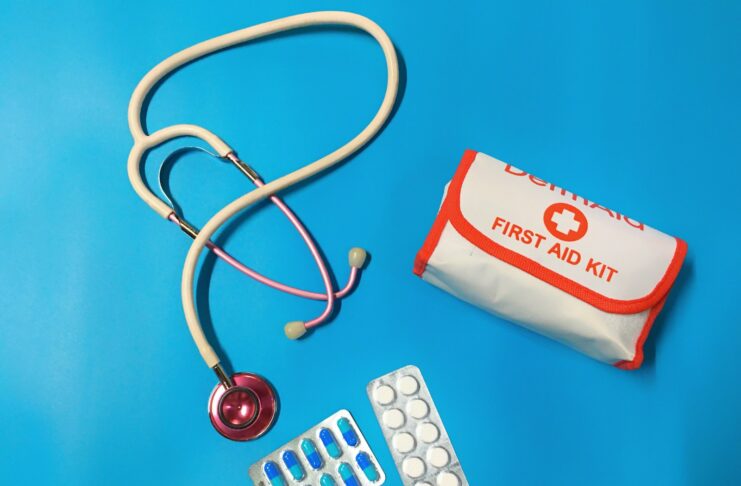St John Ambulance has launched a national campaign calling on UK employers to improve their emergency preparedness, as new figures reveal rising levels of traumatic injuries, both in and outside the workplace.
The first aid charity’s campaign shows the need for a “holistic approach” to trauma response training, in light of increasing knife crime, workplace accidents and potential mass casualty incidents. In 2024 alone, over 50,000 knife-related offences were recorded in England and Wales, while more than 600,000 employees in Britain were injured at work.
The charity is urging organisations to ensure staff are equipped to respond not only to everyday incidents like choking or falls, but also to more serious scenarios such as severe bleeding, cardiac arrest or even terrorist attacks.
Lisa Sharman, head of Education and Commercial Training at St John Ambulance, said the urgency was reinforced by recent national tragedies.
“Our findings – and the occurrence of tragedies like the one just experienced in Liverpool – underlie the urgency of our campaign. We are urging organisations to step up their staff training for response to major traumatic incidents.”
Sharman added that this campaign applied to all industries.
“This is relevant for all organisations across all sectors. They must be better prepared for the unexpected and step up their approach to emergency response in the workplace.”
Preparing for Martyn’s Law
The campaign also encourages businesses to prepare for Martyn’s Law, which is forthcoming legislation named after Martyn Hett, who died in the Manchester Arena bombing. It will require certain venues and workplaces to implement counter-terror training and response planning.
Sharman emphasised the importance of readiness at every level, saying that a“holistic approach that equips colleagues with the skills to respond to physical needs in the moment is crucial, but also mental health needs in the aftermath”.
She added that “[f]rom being caught in a mass casualty event to falling through a window, traumatic incidents do happen, and employers have a duty to ensure their teams are trained and equipped to respond”.
And, she said, “[p]ractical, hands-on courses can help overcome this. Comprehensive training creates a trauma-informed workplace, equipping people with the ability and knowledge needed to deal with first aid emergencies in most workplaces”.
Widespread Gaps in Basic First Aid Knowledge
St John Ambulance’s research shows that only four in 10 people know how to treat a severe bleed or administer CPR, and fewer than half know how to deliver back blows to a choking person.
The charity also found that more than a quarter of people in England have experienced a cardiac arrest incident, while nearly three in 10 have been involved in a severe bleeding event, whether as a patient, first aider or bystander.
“Being trained and equipped saves lives. A key factor that determines how likely people are to act in these kinds of emergencies is training. When emergencies happen – and they will – preparedness makes all the difference,” said Sharman.
Courses for Physical and Mental Health Response
St John Ambulance offers a range of Workplace First Aid Training Courses, from basic first aid and defibrillator training to advanced options like First Responder on Scene and First Response Emergency Care Level 3, which cover incidents involving catastrophic bleeding, neck and spinal injuries.
The organisation also provides Mental Health First Aid Training Courses, including Mental Health Awareness, e-learning modules, and training for workplace first aiders and managers. These are designed to help workers recognise and respond to signs of mental health issues in colleagues.
For further details or to book a training course, visit: www.sja.org.uk/ml


